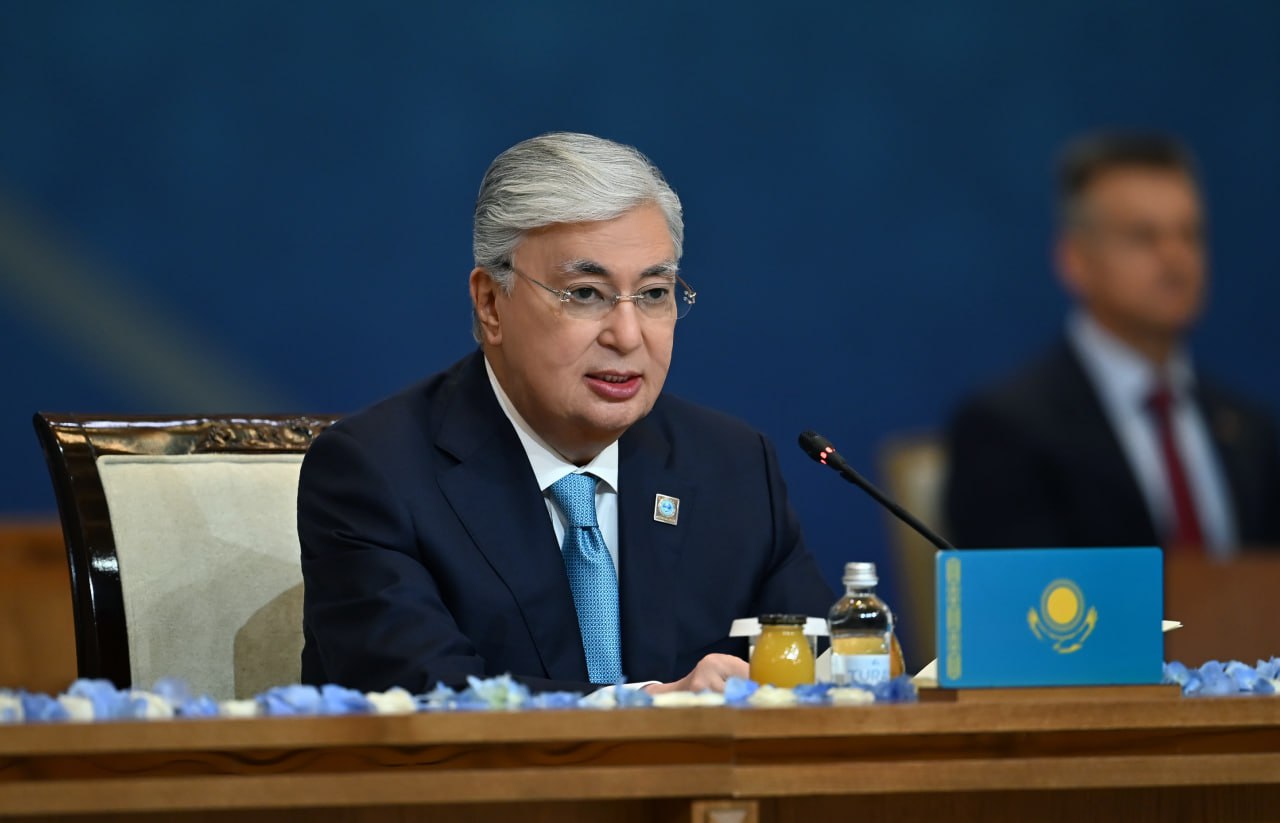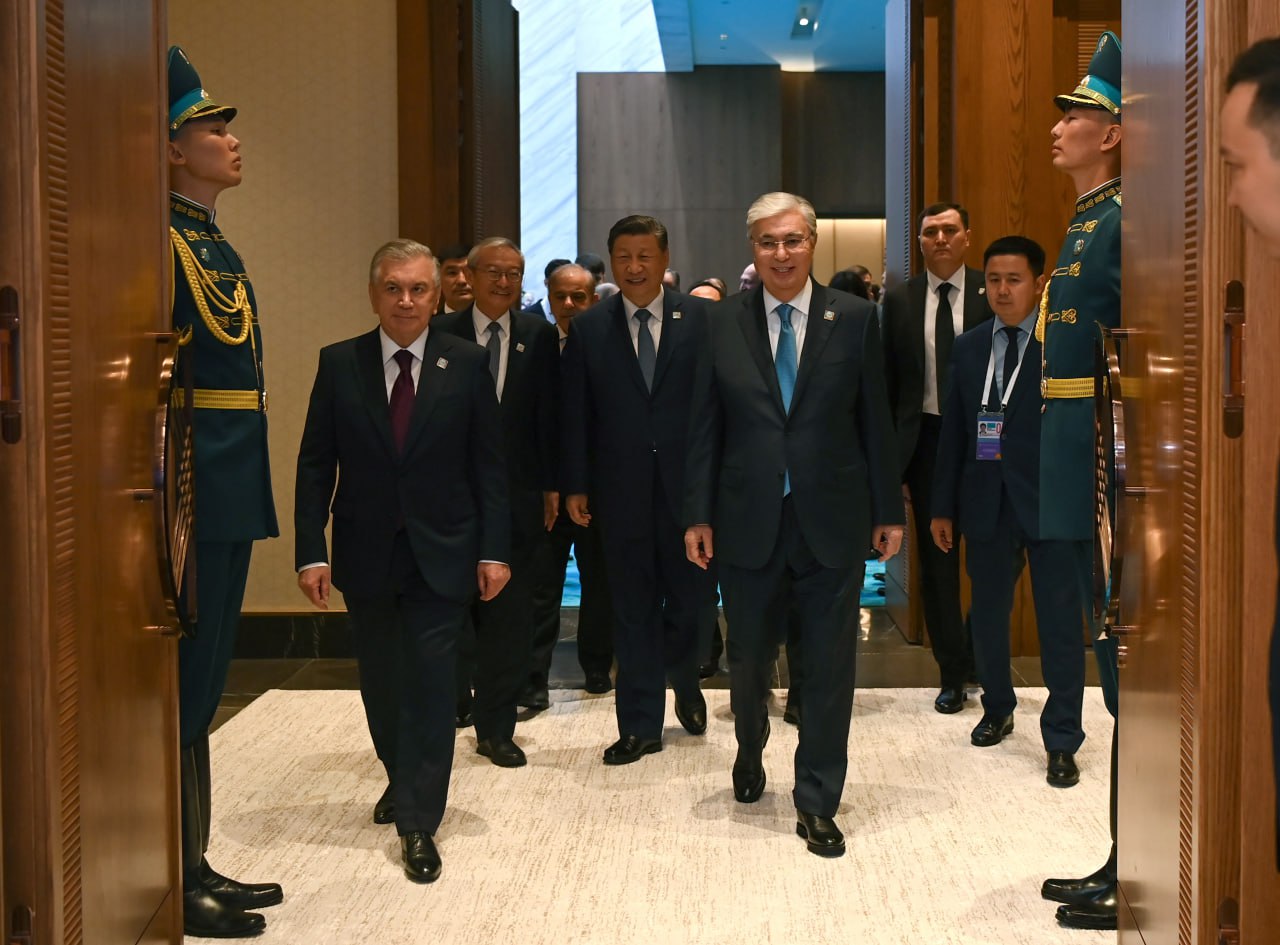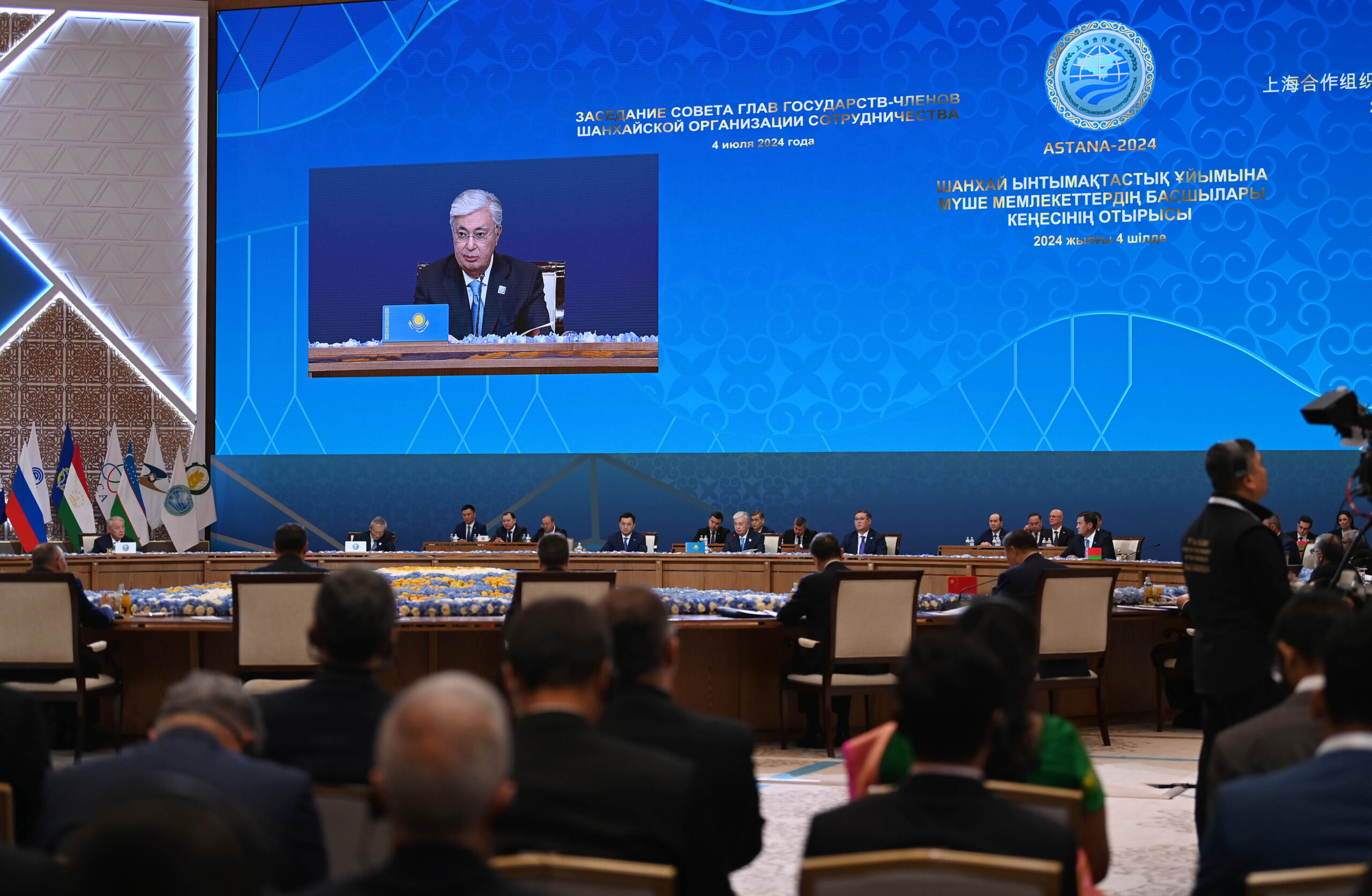ASTANA – President Kassym-Jomart Tokayev outlined critical strategic directions for the Shanghai Cooperation Organization (SCO) member states during his address at the 24th summit of the SCO Council of Heads of State on July 4 in Astana.

Kassym-Jomart Tokayev addresses the 24th summit of the SCO Council of Heads of State. Photo credit: Akorda
Speaking at the summit, President Tokayev stated that the SCO has become an effective mechanism of interstate relations, operating on the basis of the “Shanghai spirit” of friendship, good neighborliness, equality, and mutual support.
He highlighted the significance of the SCO and the event. “More than three billion people live in the SCO space. The organization includes the world’s largest and fastest-growing economies, accounting for a third of global GDP. This clearly demonstrates the enormous potential and global role of our organization,” he said.
Strengthening mutual trust and cooperation in security
Amidst current global challenges, Tokayev emphasized the need for the SCO to enhance its stabilizing role to counter the erosion of international law, prevent geopolitical tensions and ultimately strengthen peace and security on a global scale.
He affirmed that the SCO has exceptional opportunities to serve as a guarantor of peace and security throughout the Eurasian continent. In this regard, Kazakhstan’s Initiative On World Unity for Just Peace, Harmony, and Development has received unanimous support from SCO member states.

President Tokayev hosts leaders of SCO member states in Astana. Photo credit: Akorda
Tokayev proposed developing an agreement on confidence-building measures in the military sphere, particularly to combat the “three evil forces”– terrorism, separatism, and extremism. He also stressed the importance of strengthening cybersecurity by establishing a mechanism for the constant exchange of information and best practices to ensure the stability of the SCO countries’ information infrastructure. The Interaction Plan on international information security adopted at the summit aligns with these goals.
Expanding trade and economic relations
Mutual trade among SCO countries is growing, with Kazakhstan’s trade with SCO countries increasing by 6.5% last year. Tokayev highlighted the importance of developing special tax, customs, and migration regimes to foster economic growth. Kazakhstan’s proposal to create an SCO Economic Preferences framework remains relevant.

The SCO Summit resulted in the singing of the Astana Declaration and 25 resolutions. Photo credit: Akorda
“We propose to create a mechanism for financial support of project activities on the basis of the Astana International Financial Centre (AIFC). China, Russia, India, Uzbekistan, and the Kyrgyz Republic are already actively working on this site. Overall, 20% of AIFC residents are companies from SCO countries,” he noted.
Strengthening transport connectivity
Tokayev underscored the significance of synergizing China’s Belt and Road Initiative with the Trans-Caspian International Transport Route and trans-Eurasian corridors in the North-South direction, including the Central Asia – South Asia vector. He called for practical measures to establish a Partnership Network of strategic ports and logistics centers within the SCO.
Kazakhstan’s chairmanship
Kazakhstan, as the current chair of the SCO, has proposed balanced measures to transform the organization into a more effective multilateral cooperation mechanism. This includes strengthening the role of the SCO Secretariat and the Secretary-General.
The Kazakh chairmanship has also focused on enhancing cultural and humanitarian ties. Key projects include the SCO Spiritual Sanctuaries and the first international music festival, SCO Silk Road. Ten tourist territories have also been identified for the implementation of joint projects. Almaty has been designated as the cultural and tourist capital of the SCO.
SCO leaders laud new resolutions in Astana Summit addresses
President of Russia, Vladimir Putin, praised “a truly solid package of documents and resolutions” prepared with the active participation of Kazakhstan. He supported the idea of resuming the SCO-Afghanistan contact group’s activities to normalize the situation in Afghanistan.
He mentioned that the resolutions adopted today to transform the SCO Regional Anti-Terrorist Structure into a universal center and to establish an anti-drug center in Dushanbe are aimed primarily at maintaining the security of SCO member states.
President of the Kyrgyz Republic, Sadyr Japarov, highlighted the importance of unity and joint efforts in overcoming global challenges such as the pandemic, climate change, and economic instability. He emphasized the SCO’s commitment to resolving conflicts based on internationally recognized norms and principles.
Japarov also called for reducing trade barriers in the SCO space and recalled the country’s initiative to create institutions to finance projects, such as the SCO Development Bank and the SCO Development Fund.
Pakistani Prime Minister Shehbaz Sharif remarked that Kazakhstan had once again reaffirmed its commitment to promoting the SCO collective goals.
SCO Secretary-General Zhang Ming noted that the Shanghai Spirit has been and will continue to be a driving force behind the organization’s progress in the past, present, and future. He identified Central Asia as the core of the SCO, closely linking the region’s peace and prosperity to the stability and development of the SCO.
He thanked Kazakhstan for its fruitful work as the SCO chair and congratulated China on assuming this position.
President of China Xi Jinping echoed the significance of the Shanghai Spirit, urging member countries to consolidate unity against interference in internal affairs by foreign forces.
